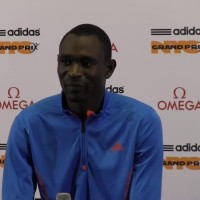Russia and Kenya, the two nations implicated most seriously in the latest doping allegations to rock the athletics world, have both hit back over the claims.

The Sunday Times and the German broadcaster ARD/WDR said at the weekend that they had been given access to the results of more than 12,000 blood tests provided by 5,000-plus athletes between 2001 and 2012. The media organisations said the results showed that more than 800 athletes had given blood samples that were “highly suggestive” of doping or “abnormal”. Of the 800 cases, 415 were Russian athletes, while 77 were Kenyans, according to the reports.
Kenya’s athletics body said the allegations, which included the suggestion that 18 medals given to its nation’s athletes had been won with the help of performance-enhancing drugs, were a smear campaign ahead of the World Championships in Beijing this month.
Russia’s Sports Minister equally dismissed the allegations, linking the reports to the forthcoming elections for the presidency of athletics’ ruling body, the International Association of Athletics Federations (IAAF).
“This scandal has nothing to do with Russia, it is about the global system of athletics,” said Vitaly Mutko, who was alluding to the battle between the Ukraine’s Sergey Bubka and Britain’s Sebastian Coe to succeed Lamine Diack. “There are presidential elections in August, so just a common battle for power is taking place.”
The World Anti-Doping Agency (Wada) said it was alarmed by the size and extent of the allegations, which it said should be investigated.
In a documentary, aired on 1 August, ARD/WDR showed footage from a hidden camera purportedly revealing athletes being injected with performance-enhancing drugs. ARD also alleged corruption among Kenyan officials who wanted to cover up doping by runners.
Athletics Kenya (AK) said claims of widespread doping among Kenyan runners was “suspect and ill-motivated. We cannot fail to point out the documentary is an attempt to smear our runners with unwarranted suspicion as they prepare to undertake duty for their country in Beijing, China.
“The unwarranted claims are deliberately aimed at derailing the preparations and participation of the Kenyan team in the World Championships.”
Kenya boasts some of the world’s best middle and long-distance runners but dozens of its athletes have failed drug tests over the past few years.
In February, Rita Jeptoo, winner of the Boston and Chicago marathons, was banned for two years after a failed test in the biggest doping scandal to hit Kenya in recent years.
David Rudisha, 800m Olympic champion and Kenya’s best-known runner, in December said that AK should have done more to root out cheats as persistent doping claims risked tarnishing reputations of clean Kenyan runners.
Kenyan government officials have blamed the growing number of doping cases on foreign agents and AK’s failure to educate its athletes properly.
AK said it was working closely with the IAAF, Wada and the Kenyan government to counter doping.
Of the claims against Russia, Mutko added: “Russian athletes are being checked for doping the same way as athletes from other countries are. Given that we are leaders in many disciplines, the checks are even more frequent. Everyone has issues with doping – Russia, and America, and France.”
Meanwhile, Lord Coe has backed the IAAF to issue a “robust and detailed response” to the reports.









